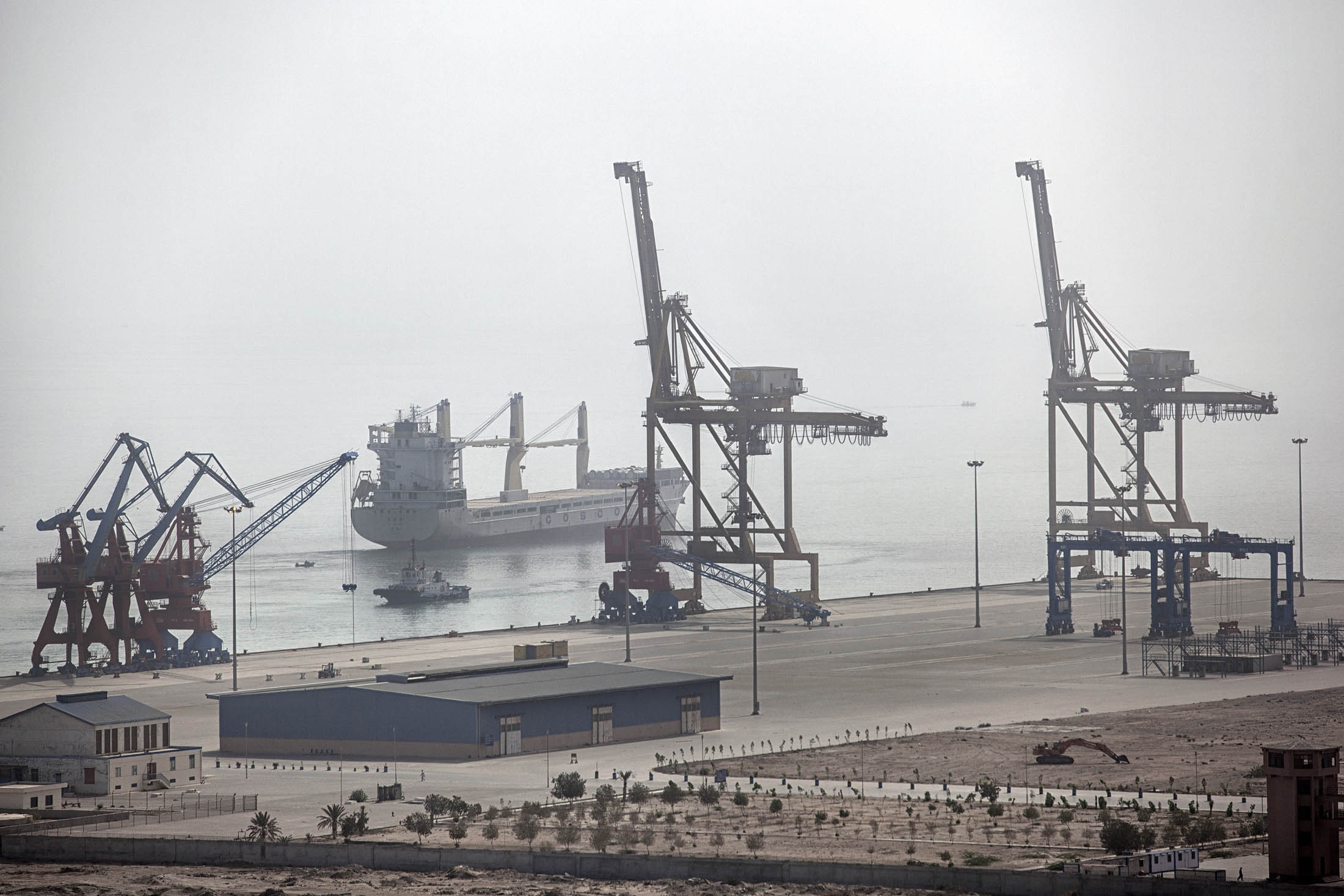
- Bloomberg News reports, "This is Chinese President Xi Jinping's biggest gambit in his so-called One Belt, One Road project to rebuild the ancient Silk Road, a trading route connecting China to the Arabian Sea that slices through the Himalayas and crosses deserts and disputed territory to reach the ancient fishing port of Gwadar, about 500 miles by boat from Dubai. The progress of the new trade route has been eyed with concern by India, which has forged a rival $20 billion plan with Iran to expand Iran's Chabahar port, 100 kilometers along the coast. Tension between the two South Asian neighbors has been escalating, with both sides claiming some of their troops were killed by the other nation this month, the worst confrontations since 1999."
BBC China Blog comments, "Within China's notoriously flawed legal system somebody is actually trying to usher in a bit of transparency. Now you can boot up your laptop or turn on your smartphone and take a peek inside proceedings. You might spot two people trying to secure an investigation into faulty tyre pressure-measuring equipment, and there is Chinese tech giant Tencent taking on the Ministry of Commerce over a copyright ruling. Divorce, robbery, murder and drug trafficking are all on display.These are trials being streamed via the new website tingshen.court.gov.cn. Some live, some pre-recorded...You can move your cursor over a map of China and each province lights up. In a sidebar the various courthouses appear with the number of hearings broadcast so far. There are split screens revealing different perspectives - of defendants, judges and lawyers. Some trials can also be played back well after the original appearance date...According to Zhou Qiang, the head of China's Supreme People's Court, the streaming site will "better safeguard people's right to know and supervise" but its value could go well beyond that, by helping Chinese citizens get a glimpse of what's actually going on inside their country, beyond the filter of state-controlled media.
NPR News reports, "When Alibaba founder Jack Ma bought the South China Morning Post in December of 2015, he held a meeting with his new employees. The billionaire tech tycoon from mainland China told reporters he wanted them to cover China more deeply, more broadly and more correctly. "The more I know about the outside understanding of China," Ma said in English to his newly-acquired editorial staff, "the more I feel that most of the things are not correct." He railed against "biased" foreign news coverage of China and said he wanted the paper to rise above the rest. In recent years, though, the Post's coverage of mainland China has gradually softened and it's eliminated some of its content entirely: In early September, the paper shut down its Chinese-language website, deleting its archives. 'Some stories were, for example, killed at the editorial meetings in the brainstorming phase,' remembers Wang. 'Other stories were downplayed, placed online only, instead of going to the paper, shortened and moved to less important pages or locations. Headlines changed. Certain quotes taken out, stuff like that.'"
- 2016-09-29 How to Fix China’s Crooked Congress
- 2016-09-28 China’s Ambitious Plan to Make the Yuan the World’s Go-To Currency
- 2016-09-27 U.S. Says Chinese Executive Helped North Korea Dodge Sanctions
- 2016-09-26 Hong Kong and the Realities of China’s Rise
- 2016-09-23 China spends more in the world than the world spends in China
- 2016-09-22 Foreign Reporters in China Face More Restrictions Now, Report Says
- 2016-09-21 At U.N., China calls for North Korean denuclearization, dialogue
- 2016-09-20 U.S., China to step up cooperation on North Korea
- 2016-09-19 China's debt crisis: Just how bad is it?
- 2016-09-18 China August home prices rise 9.2 percent year-on-year
- NPR News A Storied Hong Kong Newspaper Feels The Heat From China
- NY Times Chinese News Outlets Play Down Killings of 19 in Mountain Village
- CNBC Wang Jianlin warns China property is 'big bubble,' but strategist says only top tier cities a worry
- TIME As Dog Ownership in China Grows by Leaps and Bounds, Chinese Are Saying 'No' to Dog Meat
- NY Times Reported Spike in Maternal Deaths Spurs Questions in China
- Reuters China says countering Dalai Lama is top ethnic priority in Tibet
- The Wall Street Journal China Official Disputes U.S. Allegations on Trade Practices
- Reuters Canada says returning suspects to China needs to be done by law
- Financial Times China's new import: a growing black market in maids
- CNN Could this smog-eating tower solve China's pollution problem?
- NPR News A Storied Hong Kong Newspaper Feels The Heat From China
- Bloomberg News China's New Silk Road Hinges on a Small Pakistan Port
- Bloomberg News China's New Silk Road Hinges on a Small Pakistan Port
- The National Interest U.S. Air Force and Navy May Challenge China in the South China Sea
- The Huffington Post Global Watchdog Warns About China Debt
- The National Interest China's Economy Is Headed for a Very Hard Landing
- The Wall Street Journal: China Real Time Ex-Banker Tries to Blame West for China's Economic Problems, Gets Destroyed on Social Media
- Forbes Why Chinese Smartphone Giants Need India
- The Diplomat What Should Australia Be Doing in the East China Sea?
- BBC China Blog When China began streaming trials online
- BBC News When China began streaming trials online
